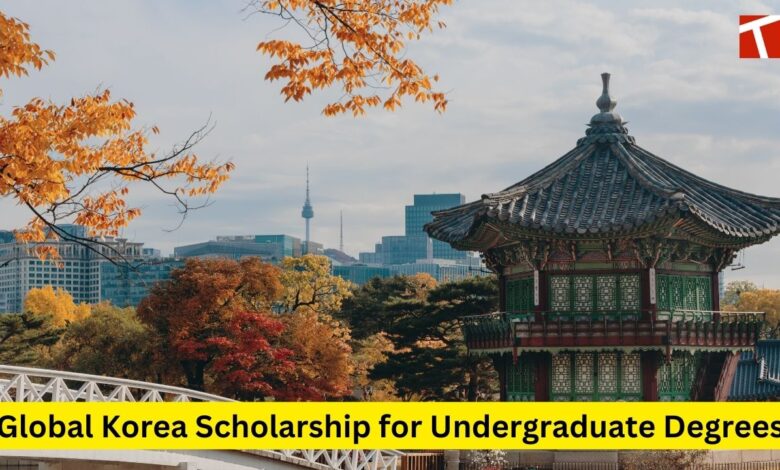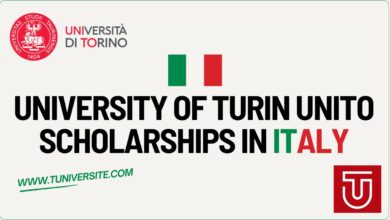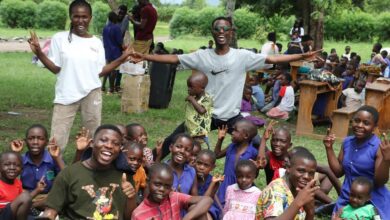Global Korea Scholarship (GKS) for Undergraduate Degrees

- varies by embassy.
Read this post in :
![]() Français
Français
Do you dream of studying at one of South Korea’s top universities? The Global Korea Scholarship (GKS) 2025, a flagship initiative by the South Korean government, is now open for international students eager to receive a world-class education.
The Global Korea Scholarship (GKS) 2025 offers a comprehensive package, covering tuition fees, Korean language courses, airfare, a monthly living allowance, health insurance, and the TOPIK test fees. You can apply for an Associate Degree or a Bachelor’s Degree, with an additional year of Korean language courses before you begin your main studies. There are 351 scholarships available, distributed between embassies and universities.
What the GKS 2025 Scholarship Covers
The GKS scholarship provides:
- Full coverage of tuition fees throughout your program.
- Korean language training fees.
- Economy class airfare to South Korea.
- A monthly allowance to cover living expenses, health insurance, TOPIK test fees, and more.
Available Degrees
You can apply for the GKS scholarship at two levels:
- Associate Degree : This includes 1 year of Korean language training followed by 2 to 3 years of degree studies.
- Bachelor’s Degree: This includes 1 year of Korean language training followed by 4 to 6 years of degree studies.
Please note that evening classes, short-term programs, and distance learning are not eligible for the GKS scholarship.
All fields of study offered by the universities participating in the GKS program are eligible.
Participating Universities
Students can choose from various Korean universities offering a wide range of academic programs. Since the links on official sites can sometimes be lengthy or inaccessible, Tuniversite has created a detailed copy of the eligible universities for the GKS 2025 program, along with all the necessary information and a list of available degrees. You can check out this information on Google Drive.
How Many GKS Scholarships Are Available?
The GKS program offers a total of 351 scholarships for international students. Selection is done by two entities:
- Embassies: They offer 71 scholarships across 69 countries (usually 1 student per country) for Bachelor’s studies.
- Universities: They offer 280 scholarships, distributed as follows:
- 100 scholarships for Bachelor’s or Associate Degree studies in natural sciences and engineering. These are available to students from any country and have no predefined quotas for each degree. These scholarships are available at specific universities.
- 80 scholarships for Bachelor’s studies, available only at universities outside of Seoul, with distribution based on the candidate’s region of origin.
- 100 scholarships for Associate Degree studies, available to candidates from any country and in any field of study, with no predefined quotas.
Eligibility Criteria for the GKS 2025
Nationality
To be eligible, you must:
- Be a citizen of one of the eligible countries.
- Have parents who are not citizens of Korea.
- If you hold dual citizenship, including Korean citizenship, you are not eligible.
Education Level
The requirements differ depending on the program:
- Bachelor’s Degree: You must have graduated (or be about to graduate) from high school or an associate degree program.
- Associate Degree: You must have graduated (or be about to graduate) from high school.
Age
You must be under 25 years old, meaning you were born after March 1, 2000.
Other Criteria
You must:
- Be in good mental and physical health to study in Korea for the entire duration of the program.
- Have no criminal record that would prevent you from traveling internationally.
Eligible Countries for the GKS 2025 Scholarship
The eligible countries for the Global Korea Scholarship (GKS) 2025 include:
- Africa: Angola, Egypt, Ethiopia, Gabon, Ghana, Kenya, Morocco, Mozambique, Nigeria, Rwanda, Sudan, Tanzania, Uganda, Zimbabwe.
- Asia: Afghanistan, Azerbaijan, Bangladesh, Bhutan, Brunei, Cambodia, India, Indonesia, Iran, Japan, Jordan, Kazakhstan, Kyrgyzstan, Laos, Malaysia, Mongolia, Myanmar, Nepal, Pakistan, Philippines, Singapore, Sri Lanka, Tajikistan, Thailand, Timor-Leste, Turkmenistan, Uzbekistan, Vietnam, Yemen.
- Americas: Bolivia, Brazil, Canada, Chile, Colombia, Dominican Republic, Ecuador, El Salvador, Guatemala, Mexico, Panama, Paraguay, Peru, Trinidad and Tobago, Uruguay, Venezuela.
- Europe: Bulgaria, Poland, Russia, Sweden, Ukraine.
- Oceania: Fiji.
How to Apply for the GKS Scholarship
Each Korean embassy and university will post the selection timeline and procedure on their respective websites. Be sure to check these announcements to know how to submit your application.
The Korean embassy in your country usually has two options for the application process. It may work with a relevant authority, such as the Ministry of Higher Education, to recommend candidates. In this case, the program announcement will likely be published on the ministry’s website. Alternatively, the embassy may choose to select candidates directly without recommendations, and in this case, the program announcement will be made on the embassy’s website.
The application deadline varies by embassy, while for universities, the deadline is set for October 25, 2024.
You can find a list of South Korean embassy websites worldwide here: https://www.mofa.go.kr/.
The list of universities, their official websites, and other useful information can be found on our GKS 2025 Google Drive.
Required Documents
Whether you’re applying through an embassy or a university, you’ll need to prepare the following documents:
- Application form (provided by the university or embassy).
- Personal statement.
- Study plan.
- Recommendation letter.
- Personal medical assessment.
- Certificates of citizenship and family relationship.
- High school graduation certificate.
- Academic transcript.
Contacts
For more information, you can contact the relevant embassies and universities or reach out to the GKS program officials at [email protected].
Additional Information
For further details, visit the official website for the GKS scholarships by the Korean government.





